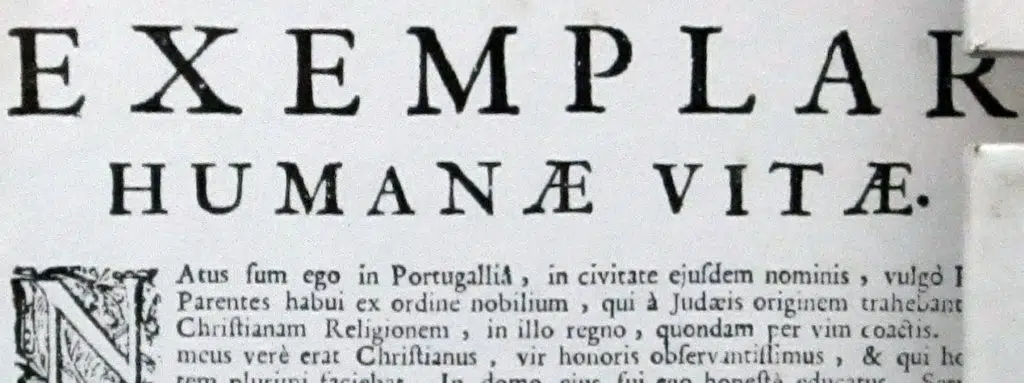Few encyclicals in the history of the Church have caused more controversy than Humanae vitae [1], published on July 25, 1968 by Pope St. Paul VI.
The central purpose of Humanae vitae is easily summarized and is well-known by many. In brief, it reiterates the long-standing Catholic and Christian belief in God’s plan for married love and the transmission of life—reasserting the moral impermissibility of contraception that attacks the procreative nature and unitive aspect of marriage.

As Pope Paul VI stated, we cannot morally justify “any action which either before, at the moment of, or after sexual intercourse, is specifically intended to prevent procreation—whether as an end or as a means.”
The encyclical was published just as the sexual revolution was getting into full swing and came after a ferocious debate both within and without the Church.
Before Pope Paul VI could release his encyclical, the Vatican’s preliminary reports by the Theological Commission on the question of the moral permissibility of contraception were leaked to the press. As it turns out, the so-called “majority report” actually recommended that the traditional teaching be relaxed, suggesting that couples could choose for themselves whether or not to use contraception.
The Leaked Report
This report’s leak caused a furor and raised expectations globally that the Pope was about to reverse the Church’s teachings on this fraught issue.
However, as anyone who understands how the Church works immediately grasped, the role of the consulting theologians was only to advise the Holy Father on how to address this issue. The Commission lacked any magisterial authority, leaving the ultimate decision on how to approach the issue to the Pope, the Vicar of Christ on earth.

Ultimately, Pope Paul VI, as noted above, decided to reaffirm the perennial tradition on this matter. He rejected the Commission’s recommendations, stating that some of the suggestions “were at variance with the moral doctrine of marriage constantly taught by the magisterium of the Church” (no. 6). And so strong was his opposition to the Commission that the Holy Father used Sacred Scripture, Tradition, and the Natural Law to explain why the findings of the Commission were incorrect.
Pope St. Paul VI’s Predictions
The backlash to the publication of the encyclical was swift and overwhelming. To Pope Paul VI’s deep chagrin, among those who openly dissented from the teaching of the encyclical were many theologians, priests, and even many bishops.
And yet, 57 years after the publication of Humanae vitae, we can stand back and examine the truth and impact of the encyclical from a vantage point that Pope St. Paul VI was never able to enjoy.
In the document, Pope Paul VI famously made four predictions or “prophesies” about what would occur if contraception were approved and widely adopted.
He predicted:
- Firstly, that there would be a general decline in morality, and an increase in marital infidelity.
- Secondly, that men would increasingly treat women with disrespect, as mere objects to serve their pleasure.
- Thirdly, that governments would be tempted to abuse their power by using coercive measures to control population, requiring that couples limit family size using contraception and/or abortion.
- Fourthly, that humans would develop an exaggerated notion of their power over the world and their bodies (cf. Humanae vitae, no. 17).
By this point, the wealth of evidence vindicating each of these predictions is so vast that it would be easy to write a list simply by opening up the nearest newspaper and scanning the headlines.
Modern Evidence Confirms the Pope’s Concerns
Let’s take each prediction, in brief, point by point.
Consider, in the first place, the explosion in divorce rates, the normalization of such things as “polyamory” and serial cohabitation, and a dating scene in which sexual intercourse is expected after a single shared meal or movie.
In the second place, consider that we live in a world where more and more experts are raising the alarm about the fact that young women are routinely being violently assaulted by their sexual partners. This is happening because young men have been steeped so deeply in pornography that depicts things like “choking” as normative and desirable, that they can’t even conceive of a form of sexual expression that is anything other than rapacious and violent.
Thirdly, the bleak history of population control in places like China, India, and indeed even the United States, certainly vindicated the Holy Father’s concerns about the misuse of power.
And finally, we are now seeing technocrats such as Elon Musk openly promoting feverish transhumanist dreams, in which they foresee human beings “merging” with machines, gaining godlike levels of intelligence, strength and power. Such technocrats seem not even to conceive of the possibility that human power should be subject to any limits whatsoever.
Then, of course, the normalization of dystopian practices such as in vitro fertilization (IVF) involving the genetic screening and the abortion of “undesirable” embryos; a burgeoning “surrogacy” trade in which women’s bodies are bought and sold as mere incubators for the children of other couples, and so on and so forth.
The Church’s Call to Truth and Mercy
Nevertheless, despite the resounding vindication of Humanae vitae, widespread resistance to its teachings remains, not just within the broader culture, but also within the Church. While weekly or daily Mass-going Catholic couples are far more likely to follow the teaching of Humanae vitae, a large majority of self-described Catholic couples do use contraception, arguing that the Church’s teachings are unrealistically difficult.
However, in its teaching on questions of sexuality and married love, the Church has always recognized that giving witness to truth must be carefully balanced with mercy and gentleness. At times, however, it is true that it is not always clear how precisely to do this, especially as the Church confronts a culture and society blind to the harms of the contraceptive mentality and hellbent on advancing its narrative regarding sex, marriage, and family life.
On the question of the use of contraception, the Church has repeatedly acknowledged that the high moral standard regarding the nature and goods of marriage, which it is divinely mandated to protect, can be difficult for some couples to understand and follow. And yet, here it is worth recalling the reaction of Christ’s disciples when He pronounced His teaching on the indissolubility of marriage.
Asked by His disciples why Moses permitted divorce, Christ answered provocatively: “Because of the hardness of your hearts Moses allowed you to divorce your wives, but from the beginning it was not so. And I say to you, whoever divorces his wife (unless the marriage is unlawful) and marries another commits adultery” (Mt 19:8-9).

The disciples, scandalized, responded incredulously: “If that is the case of a man with his wife, it is better not to marry.” Christ’s response to this is instructive: “Not all can accept [this] word, but only those to whom that it is granted. … Whoever can accept this ought to accept it” (Mt 19:10-12).
In other words, the truth is unchanging and cannot be changed. But human beings will struggle at times to model their lives on the truth. Nevertheless, as humans called to holiness, we should always strive for the narrow road, daily training our wills and passions in conformity with the moral law.
Understanding the Law of Gradualness
A document [3] published by the then-called Congregation of the Doctrine of the Faith (CDF) under Pope John Paul II, when Cardinal Ratzinger was the prefect, carefully discusses how to balance truth and mercy specifically in relation to the question of contraception.
Summarizing the approach that pastors must take, the CDF wrote:
The Church, for her part, as Teacher and Mother, is called to draw inspiration from the attitude of her Lord, from whom she receives the gift of pastoral love; this is an attitude full of love, of understanding, of patience and of mercy, while at the same time it is clear and strong in announcing and proposing the truth and the moral norm whose observance is a necessary condition of a life that is truly and fully human, and for the journey of holiness to which we are all called.
The CDF points to Christ’s response to the woman caught in adultery as a template for the Church’s pastoral approach.
[Christ’s] pastoral attitude is revealed in an outstandingly clear and typical example in the word which Jesus addresses to the woman who was a sinner: “Has no one condemned you?… Neither do I condemn you, go, and do not sin again” (Jn 8:10-11). Calling good and evil by their right names, Jesus does not falsify moral truth, but bears witness to it in an unmistakable way, and in offering his merciful love to the woman who had sinned and repented, he leads her back to the truth and to salvation.
The document goes on to reiterate the teaching of Humanae vitae in the clearest possible term. “Contraception is one of these acts in itself and of itself it is always a moral disorder,” writes the CDF, “since objectively and intrinsically (independently of subjective intentions, motives, and circumstances) it contradicts ‘the innate language that expresses the total reciprocal self-giving of husband and wife’” (Apostolic Exhortation, Familiaris consortio, no. 32).
However, the CDF adds, there is room here to apply the “law of gradualness.” In other words, pastors have the freedom to acknowledge that the subjective guilt of a particular subject may be greater or lesser, depending upon their life’s circumstances and background. Nevertheless, this “must not in the slightest way be confused with the unacceptable idea of a ‘gradualness of the law.’”
That is to say while subjective guilt may change and must be dealt with on a case-by-case basis, the objective moral truth about certain actions cannot change.
Contraception and the Declining Birth Rate
One of the big pieces of news [4] this week is that the birth rate in the United States has hit its lowest level since birth rate data began to be tracked. According to new data, the U.S. birth rate stands at less than 1.6 children born per woman. This is far below the replacement birth rate of 2.1, meaning that without immigration, the U.S. population would begin to fall.
As many news outlets have noted, this marks a big change for the country. As birth rates in most developed Western nations plummeted far below replacement level, the U.S. had stood out as maintaining a comparatively healthy birth rate, until fairly recently.
When Humanae vitae was published, the world was fixated on the supposed coming apocalypse of over-population. The encyclical even gives a nod to this, noting that while governments may take measures to address “the population problem,” any such measures should be thoroughly rooted in the moral law.
Now, however, some have argued that this is a point on which the encyclical may not have quite hit the mark. While Pope Paul VI accurately predicted the moral implications of the widespread adoption of contraception, it would have been difficult to imagine at that time just how “successful” the overpopulation propaganda would prove to be, and just how deeply the contraceptive mentality would sink its teeth into our cultures.
Why Humanae Vitae Is More Relevant Than Ever
At the time Pope Paul VI wrote the encyclical, it was still widely held that one of the most important things that any human being could do, would be to get married, and to raise a family. The introduction of contraception and abortion into the culture, however, has turned this on its head.
More and more we see couples adopting an explicitly hedonistic worldview, in which they deliberately choose childlessness so as to maximize their ability to indulge in their own desire for wealth, entertainment, and travel.
It is fitting, therefore, that in the same week that we celebrate the anniversary of Humanae vitae, we receive yet one more piece of evidence of how prophetic this encyclical was. The developed West is, ironically, committing demographic suicide at precisely the moment that it has achieved previously unthinkable levels of wealth, health, and freedom.

Our culture is haunted by the spirit of the sexual revolution—a dark spirit that turns the attention of people inwards, to the nurturing of their own desires and own ego. With Humanae vitae Pope St. Paul VI had attempted to exorcise this spirit, encouraging couples to choose a higher path, the path of holiness. Difficult it may be, but couples can always move forward in the sure conviction of the breadth of God’s mercy, and in the hope that by ever more closely aligning their desires and actions to the truth, they will reap rewards that far surpass the glittering things of this world.
